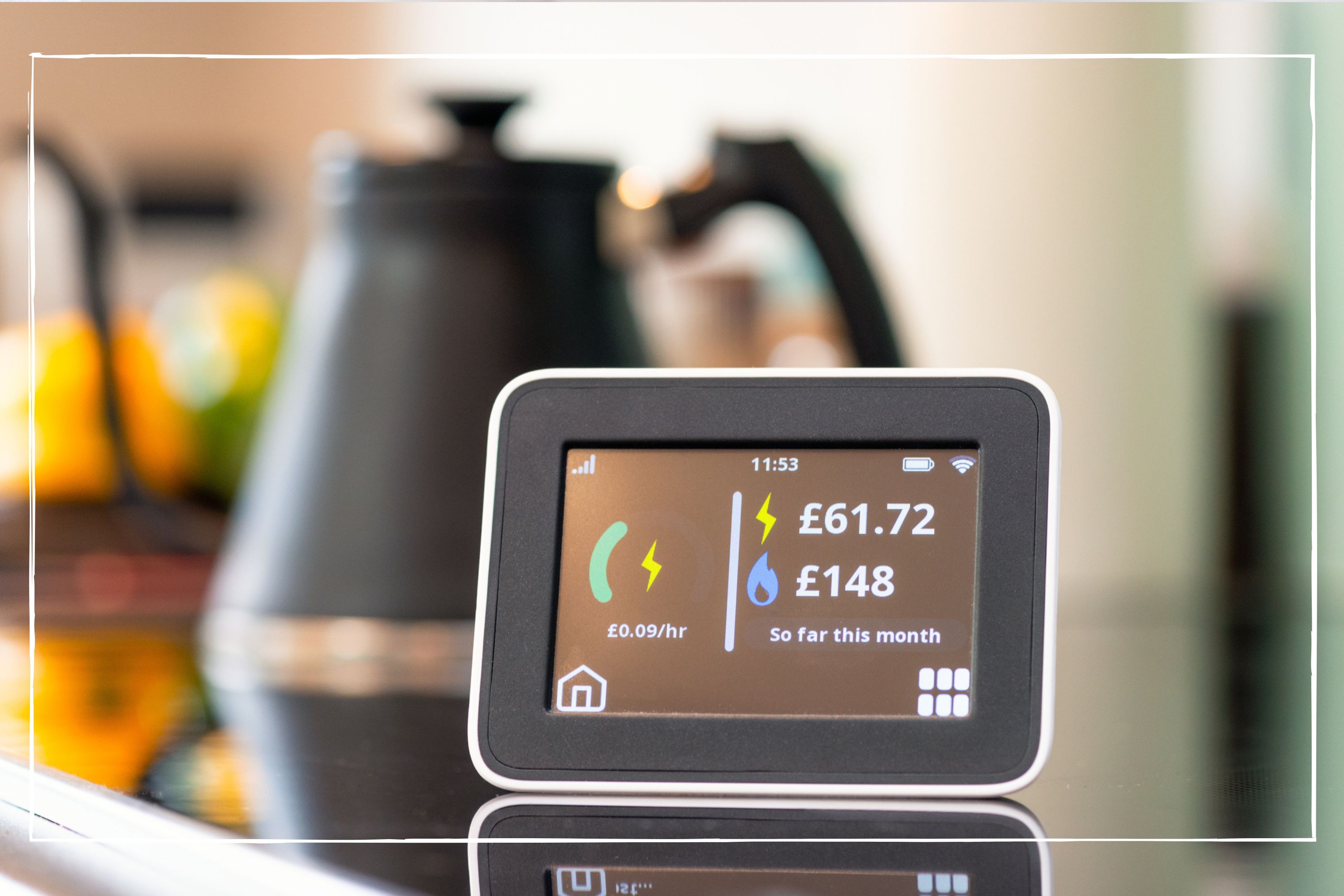
With energy prices hitting sky-high levels, you might be wondering what is a smart meter and can it help you keep your energy bills as low as possible?
2022 was a difficult year for millions of families. In April, the energy price cap increased by 54% and it was due to increase again by around 80% in October, leaving many households worried about how much their energy bills will cost. But luckily the government intervened and introduced the Energy Price Guarantee that will keep energy prices for consumers at a relatively stable level until the end of March 2024.
While the government also announced a £400 energy rebate for almost every household in the country, it's still important to know how much energy you use, and to make sure the bills you do pay are accurate. This is where smart meters come in.
If you replace your old-style gas and electricity meters with smart meters, your readings will automatically be sent to your supplier. Meanwhile you will be able to see real-time information about your energy usage and bills.
Some homes may have already been switched to smart meters thanks to Government-backed organisation Smart Energy GB that is overseeing the smart meter rollout.
A spokesperson for Smart Energy GB says: “At a time when energy prices are rising, many people will be looking for ways to better manage their usage at home. The in-home display which comes with your smart meter allows you to track and adjust your energy usage, as it provides near-real time information in pounds and pence on your gas and electricity use.”
What is a smart meter and how does it work?
Like traditional gas and electricity meters, a smart meter measures your energy usage at home. But when it comes to smart meters, they are ‘smart’ because they communicate directly with your energy company. This means there’s no need to read your meters and give the readings to your supplier. This is all done automatically via the smart meter.
Parenting advice, hot topics, best buys and family finance tips delivered straight to your inbox.
A smart meter actually involves three components:
- a smart meter to replace your old gas meter
- a smart meter to replace your old electricity meter
- an in-home display (IHD) unit
These components communicate with each other wirelessly over the Data Communications Company (DCC). The DCC is a wireless network set up specifically for smart meters and is how meter readings are sent to your energy supplier.
A smart meter can help households use less energy and save money, while ensuring people receive accurate bills.
Smart meters are suitable for all types of households. You can get a smart meter if you’re a tenant – you don’t need your landlord’s permission.
You can also get one if you have a prepayment meter. For prepay customers the IHD will show how much credit you have left, your emergency credit balance, and any debt balance. You should also be able to top up your balance online. You can even receive alerts when your credit is running low.
What is a smart meter in-home display unit?
An in-home display (IHD) is a small electronic screen which shows you how much energy you are using, and how much it’s costing you.
An IHD communicates with your gas and electricity smart meters via the DCC and updates every 30 minutes for gas and roughly every 10 seconds for electricity. Your energy usage will be shown in kilowatt hours (kWh), and pounds and pence.
Adam French, personal finance editor at our sister site The Money Edit, says: “Most smart meters will come with an in-home display which links to your devices and gives you a real-time view of your energy consumption. For example, you could check your in-home display before and after doing a wash and see how much this costs each time, which may encourage you to do fewer washes.”
You will need to either plug your IHD into an electrical socket or use batteries. But it doesn’t need to be next to your gas and electricity meters – most people have it in their kitchen.
Do I need a smart meter?
Having a smart meter installed means an end to estimated bills, which means you will not longer be potentially paying more than necessary for your energy. You'll also benefit from near real-time information about your energy use.
Old-style meters need to be read on a regular basis with the readings submitted to the energy company. If this isn’t done, your energy supplier estimates the readings and your bills are based on these estimates, not accurate ones. Estimated bills often result in being in debt to your energy company – and having to pay a lump sum to catch up.
“Smart meters put an end to estimated bills and manual meter readings, which means you will only ever pay for the energy you actually use,” says a spokesperson for Smart Energy GB, “Smart meters will also help us to deliver an energy system that makes more efficient use of greener, renewable sources of energy.”
How can a smart meter save me money?
You won’t save money just be having a smart meter installed – you’ll need to change your energy habits and learning how to save energy at home. The smart meter helps you do this as it shows the direct impact your habits and lifestyle have on your energy bill.
MoneySuperMarket spokesperson Stephen Murray says: “If you’re trying to cut down how much energy you’re using, you can spot where you might be able to make changes – small things like turning off the lights in rooms you’re not using, not boiling a full kettle for one cup, and using the eco mode on appliances, like dishwashers and washing machines, can all help.”
Some energy suppliers only offer their cheapest tariffs to customers with smart meters. So, if you stick to an old-style meter, you might find yourself locked out of the cheapest energy deals.
How can I get a smart meter?
Every household in the UK is eligible for a smart meter for free. The smart meter rollout is managed by Smart Energy GB in conjunction with energy suppliers who are installing the meters.
You can enter your supplier on the search facility on Smart Energy GB’s website and it will direct you to the section on your supplier’s website where you can book an appointment for smart meter installation.
You’ll need to be at home for the engineer’s appointment. It takes about two hours to install both meters, and your electricity and gas will each need to be switched off for about half an hour.
If you have different suppliers for electricity and gas, you will need to arrange two separate smart meters installations, one with each supplier. Each supplier will install a separate IHD.
What are the downsides of smart meters?
The main issue with smart meters is that some homes have one of the first generation of smart meters (known as SMETS1 meters) installed and these aren’t as good as the second generation of smart meters (SMETS2).
SMETS1 meters may stop working if you switch suppliers. However, they can be remotely upgraded with software to meet SMETS 2 specifications or switched for a SMETS2 meter.
It’s important to understand that just getting a smart meter won’t magically reduce your energy bills. To save money, you’ll need to read and understand the information shown on your IHD and then work out which appliances you should turn off or use less.

Emma Lunn is a multi-award-winning journalist who specialises in personal finance and consumer issues. With more than 18 years of experience in personal finance, Emma has covered topics including all aspects of energy - from the energy price cap to prepayment meter tricks, as well as mortgages, banking, debt, budgeting, broadband, pensions and investments. Emma’s one of the most prolific freelance personal finance journalists with a back catalogue of work in newspapers such as The Guardian, The Independent, The Daily Telegraph, the Mail on Sunday and the Mirror.
